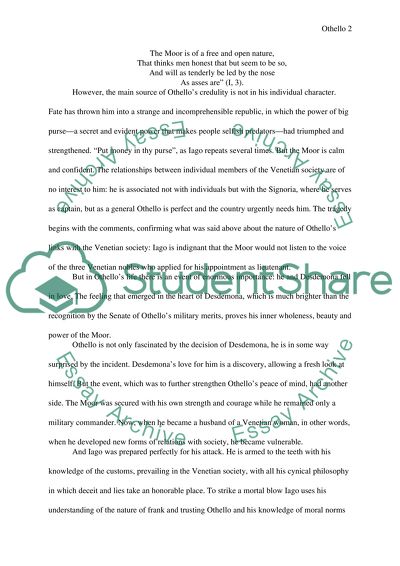Cite this document
(“Who is Othello Research Paper Example | Topics and Well Written Essays - 1000 words”, n.d.)
Retrieved from https://studentshare.org/literature/1415532-who-is-othello-what-motivates-him-why-is-iago-able
Retrieved from https://studentshare.org/literature/1415532-who-is-othello-what-motivates-him-why-is-iago-able
(Who Is Othello Research Paper Example | Topics and Well Written Essays - 1000 Words)
https://studentshare.org/literature/1415532-who-is-othello-what-motivates-him-why-is-iago-able.
https://studentshare.org/literature/1415532-who-is-othello-what-motivates-him-why-is-iago-able.
“Who Is Othello Research Paper Example | Topics and Well Written Essays - 1000 Words”, n.d. https://studentshare.org/literature/1415532-who-is-othello-what-motivates-him-why-is-iago-able.


